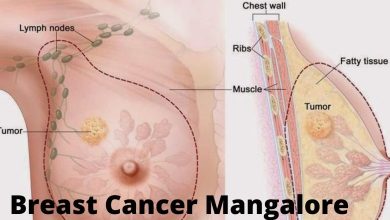Everything about immunotherapy and immune system

Immunotherapy is the use of immunological principles to diagnose and treat disease. Treatment may involve the removal of diseased tissue, administration of vaccines, passive immunization, the manipulation of antibodies, the transplantation of cells or organs, or the induction of specific responses.
Immunotherapy takes advantage of the human immune system to fight disease. Immunotherapy treatments often target cancerous cells, thereby preventing them from spreading throughout the body.
There are many different types of immunotherapies, including vaccines, antibodies, checkpoint inhibitors, adoptive cellular therapies, and others.
There are many hospitals and healthcare institutes which provide immunotherapy treatment for cancer. Fortis hospital Gurgaon, Medanta, Artemis and many more are in Delhi NCR which provide this treatment procedure. You can consult a doctor and get an appointment for your session.
How does our immune system work?
The immune system is a complex network of organs and cells involved in defending the body against foreign substances, including bacteria, viruses, fungi, parasites, chemicals, tumor cells, etc.
In humans, the immune system consists of two components: innate immunity (also called natural immunity) and adaptive immunity. These immunities in our body consist of many factor which are given below:
-
Antigen
Antigens are molecules that stimulate the production of antibodies in the immune system. These are used to identify antigens or antigenic determinants present in a substance or organism.
Antigens have been categorized into three types based on their function: exogenous antigens, endogenous antigens, and autoantigens. Exogenous antigens are those derived from outside the body, whereas endogenous antigens are produced naturally by the body. Autoantigens are antigens that cause autoimmune disorders.
-
B-cell
B-cells are the antibody producing cells of the immune system. They reside in the bone marrow and lymphoid organs. Plasma cells secrete high levels of antibodies in response to antigen stimulation. Activated B-cells express IgM on their surface membrane.
-
Monoclonal Antibody
Monoclonal antibodies are produced by hybridoma technology using B-cells taken from patients suffering from certain cancers. These monoclonal antibodies act as targeted therapies, specifically targeting cancerous cells while leaving normal cells unharmed.
Monoclonal antibodies can be used to treat many forms of cancer, such as breast cancer, non-Hodgkin’s lymphomas, chronic myelogenous leukemia, colon cancer, ovarian cancer, thyroid cancer, melanoma, renal carcinoma, lung cancer, prostate cancer, and pancreatic cancer.
-
Polyclonal Antibodies
Polyclonal antibodies are created by immunizing animals with an antigen. These antibodies then circulate in the bloodstream until they recognize an antigen of interest, at which point they attach and bind to it.
Polyclonal antibodies are often less effective than monoclonal antibodies due to lower specificity and affinity. However, polyclonal antibodies tend to be cheaper and easier to obtain.
Read also – Action taken by government to Spread Cancer Awareness in Society
Immunotherapy drugs
Immunotherapy can be described as the use of immunity enhancing drugs. These drugs help the immune system of the individual to fight off foreign invaders (pathogens) before they have the opportunity to cause any damage.
In short, immunosuppressants are anti-inflammatory agents. This means that these drugs reduce inflammation that might be caused by infections or diseases.
Types of immunotherapy drugs are:
- Checkpoint inhibitors: These medications essentially remove the “brakes” off the immune system, allowing it to detect and fight cancer cells.
- Cytokines: Cytokines (small proteins that transport messages between cells) are used in this treatment to drive immune cells to target cancer.
- Immunomodulators are medications that enhance components of the immune system in order to treat specific forms of cancer.
- Cancer vaccines: Vaccines are chemicals that are administered to the body in order to develop an immune response against certain illnesses. We normally conceive of them as being given to healthy people to assist them avoid getting sick. However, certain vaccinations can aid in the prevention or treatment of cancer.
- Monoclonal antibodies (mAbs or MoAbs) are synthetic copies of immune system proteins. Because they may be engineered to assault a highly particular region of a cancer cell, mAbs can be very beneficial in cancer treatment.
- Oncolytic viruses: This therapy employs laboratory-modified viruses to infect and destroy tumor cells.
Immunotherapy in future
Researchers are working to improve your immune system’s ability to fight cancer, as well as to better understand your defenses and how they protect you.
Science is also investigating ways to effectively mix immunotherapy with other therapies. Researchers are even investigating what happens when two types of immunotherapies are combined.
May read also – Price of Immunotherapy in India




